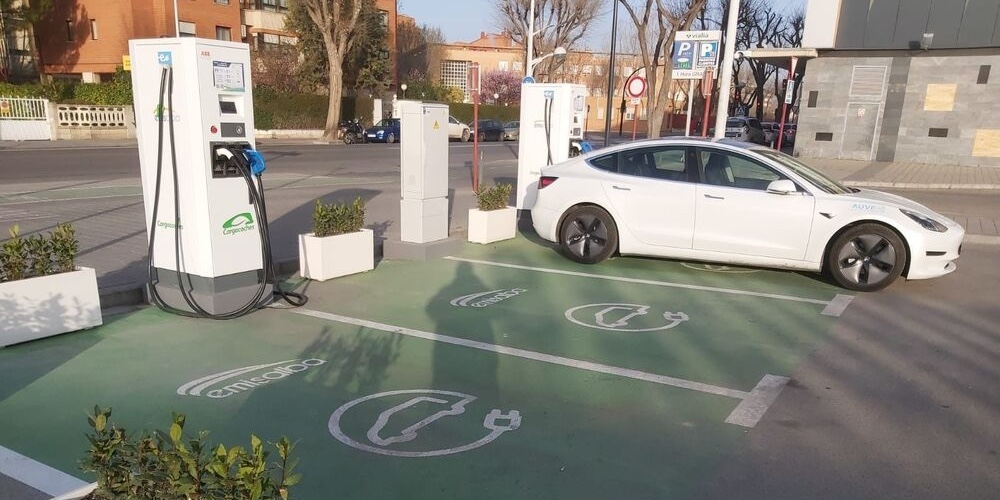Several electric vehicle users have reported drivers using charging stations as parking spaces, without actually refuelling.

“A large number of public chargers owned by municipalities are free of charge, resulting in cars that remain connected for hours and sometimes days,” notes Wojtek Siudzinski, CEO of Gaia Charge.
In this regard, he assures Mobility Portal España that it is possible to request the intervention of a tow truck or the police, although he emphasizes that there is “a simpler solution.”
What is it about? “Introducing fees for excessive ‘refuelling’ time and for leaving the car connected after the operation has finished.”
However, he maintains that, in order to achieve this, it is first necessary to implement an ordinance, a process that may require time to execute.
Meanwhile, some private operators have already begun to implement “penalties”.
Tesla, for example, applies an “idle fee” on its Superchargers, with the aim of maximizing the availability and efficient use of its equipment.
Users face a surcharge of 0.50 euros per minute when the space is occupied above 50%, a figure that increases to 1 euro per minute in the case of full occupancy.
It should be noted that this fee must be borne by both Tesla and non-Tesla owners, and there is no limit set on the amount charged for downtime.
Allego, for its part, applies a penalty of 0.25 euros per minute to cars that spend more than 45 minutes in its high-power chargers (HPC).
According to the company, this measure guarantees equal access to stations and promotes efficient use of infrastructure.
And not only that.
With the projected growth of the eMobility market, it ensures user rotation, helping to prevent potential bottlenecks at locations.
“There are more and more complaints about parking spaces that are occupied well beyond the necessary loading time, for several hours and often several days,” the firm says.
The demurrage fee applies to all Allego-owned HPC stations across Europe, including new markets such as Spain.
When will the public sector adopt similar measures?
In Madrid and Barcelona, municipal regulations already govern the use of these spaces.
In the capital, the Sustainable Mobility Ordinance establishes that parking can only be done at “refuelling” points while actively charging, with a maximum time that varies depending on the signage.
In the Catalan city, the system managed by Endolla Barcelona requires users to be registered in an application that controls and limits the time of use.
And at the national level?
Currently, there is no general regulation from the General Directorate of Traffic (DGT) regarding the improper use of spaces with charging points.
However, Article 159 (S-17) of the General Traffic Regulations determines the locations where vehicle parking is authorized.
This has a sign or symbol indicating that parking is reserved for certain categories of cars, as well as the permitted duration of parking.
Those who do not comply with the provisions may be fined 200 euros, as this action is considered a serious offence.
This measure applies both to internal combustion vehicles that park in a charging space, as well as to plug-in cars that remain in the space without being connected to the point.
However, in many cases, supervisors do not have information that allows them to verify whether a car is actually “refueling” or simply occupying the location.








